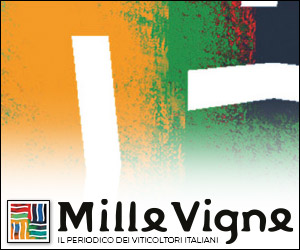By Helena Morgana Germanetto
The impact of climate change, supported by a vast majority of recent studies, underscores the urgency of implementing decisive practices in viticulture and winemaking to mitigate the effects of rising global temperatures.
Grapevines, as an extremely weather-sensitive agricultural crop, are especially vulnerable to these changes. Given the significant role of the wine industry in the global economy, there is a growing commitment within the wine world to reduce its environmental footprint. In some cases, this entails the development of entirely new business models for wine production, starting in the vineyard and extending through transportation to market. For certain producers, these efforts represent a continuation of practices that have been handed down through generations. The close connection between wine and the land on which the grapes are grown has traditionally fostered respect for the environment among reputable producers.
The pace of global warming is accelerating at an alarming rate, subjecting vines to additional stress and negatively impacting the complexity and richness of grapes, as well as all stages of grape maturation. Milder winters cause plants to emerge from dormancy earlier, rendering them more susceptible to frost. The wine industry cannot forget the heart-wrenching images of French vineyards in 2021, illuminated by thousands of candles and lanterns in a desperate attempt to save the harvest and protect the vines from losing their fruit.
Higher temperatures also lead to a lack of humidity and water in the soil, exacerbated by a diminishing number of intense spring and fall rains and a reduced snowfall during winter. These concerns are shared by many grape varieties and their survival is under threat.
However, climate change encompasses more than just higher temperatures; it also ushers in more extreme weather conditions. Wildfires have devastated vineyards, causing significant harm to both people and property. Smoke clouds have covered vineyards, impairing wine quality even when flames are not an immediate danger. More frequent and violent hailstorms, occurring year-round, have destroyed entire harvests in minutes.
In addition to these natural phenomena, the surging success of the wine industry and the allure of potential profits have prompted many regions to transform local agriculture into vineyards. Unfortunately, this pursuit of financial gain often leads to the cultivation of grapes in unsuitable areas. The resulting monoculture diminishes biodiversity, a characteristic vital to many wine regions worldwide. These conditions weaken vines further, as they cannot rely on a balanced ecosystem, forcing farmers to implement extreme measures and treatments to preserve their harvests.
How Is the Wine Industry Responding?
Federica Boffa, the fifth-generation owner of the world-renowned Pio Cesare winery located in Piedmont and operating in the Barolo and Barbaresco appellations, is following in the footsteps of her father, Pio Boffa. She has recognized that due to increasing drought in Piedmont, accompanied by a lack of snow and hotter seasons, Nebbiolo—the grape variety synonymous with the prestige of Barolo and Barbaresco wines—needs to find a safer and healthier home.
Just a few miles away from these well-known appellations lies Alta Langa, where the Boffa family has decided to invest. Alta Langa, a part of the Langhe region, shares the same soil composition as lower elevation sites, featuring a fortuitous blend of limestone, clay, and sand that has contributed to the creation of beloved wines. However, the microclimate in Alta Langa is distinct, with much lower winter temperatures, more intense rainfall, snowfall, and wind, as well as milder and more humid summers.
The Pio Cesare team is committed to experimenting with Nebbiolo in this new environment, preparing for the challenges ahead and potentially reshaping the future of the region.
Another significant issue, as previously mentioned, is the lack of biodiversity, a key characteristic of various wine regions worldwide. One such region is Prosecco DOC, which is home to America’s beloved sparkling wine.
Prosecco DOC, located in the northeastern region of Italy between the majestic Dolomite Mountains and the shimmering Adriatic Sea, is committed to innovative programs and strategies focusing on environmental protection, as well as ethical, social, and economic responsibility. The Consortium’s “Mosaico Verde” promoted by AzzeroCO2 and Legambiente, aims to increase biodiversity by planting 300,000 new trees and protecting 30,000 hectares of existing forest. In the Prosecco DOC territory, this program involves creating a grove area equivalent to at least 5% of the vineyard space. About 1,500 companies have already adopted this policy and planted 126,544 trees, equating to 76 hectares of greenery, taking a step toward a more balanced and diverse ecosystem.
Diversity, however, is a broader concept that relates to the potentially damaging effects of climate change. The standardization of viticultural practices and the homogenization of grape varieties in various wine regions have led to a general depletion of the viticultural landscape, making it more susceptible to climate change’s consequences.
Producers in Sicilia DOC, Italy’s largest wine region and the largest organic vineyard area, are cultivating indigenous grape varieties like Zibibbo, Grillo, or Nero d’Avola. These varieties not only preserve and revive ancient viticultural practices but also set an example and offer hope to growers worldwide. Mediterranean varieties are highly resistant to heat and drought, naturally high in acidity, providing a valuable alternative to sensitive French varieties and maintaining overall wine quality.
Furthermore, Sicily, known for its commitment to sustainable farming, has intensified its dedication to eco-responsibility through the Sicilia DOC Consortium and Assovini Sicilia’s efforts in establishing the SOStain Sicilia Foundation. The Foundation promotes ethical and sustainable development in the Sicilian wine sector, guiding wineries in analyzing and reducing the impact of agricultural practices on the environment while considering the well-being of workers, consumer health, local communities, the surrounding territory, and natural resource preservation.
The Italian wine industry’s numerous and encouraging responses to climate change challenges extend beyond viticulture and winemaking, encompassing economic and social aspects. This signifies that the wine industry can contribute to a brighter and more hopeful future for generations to come.



